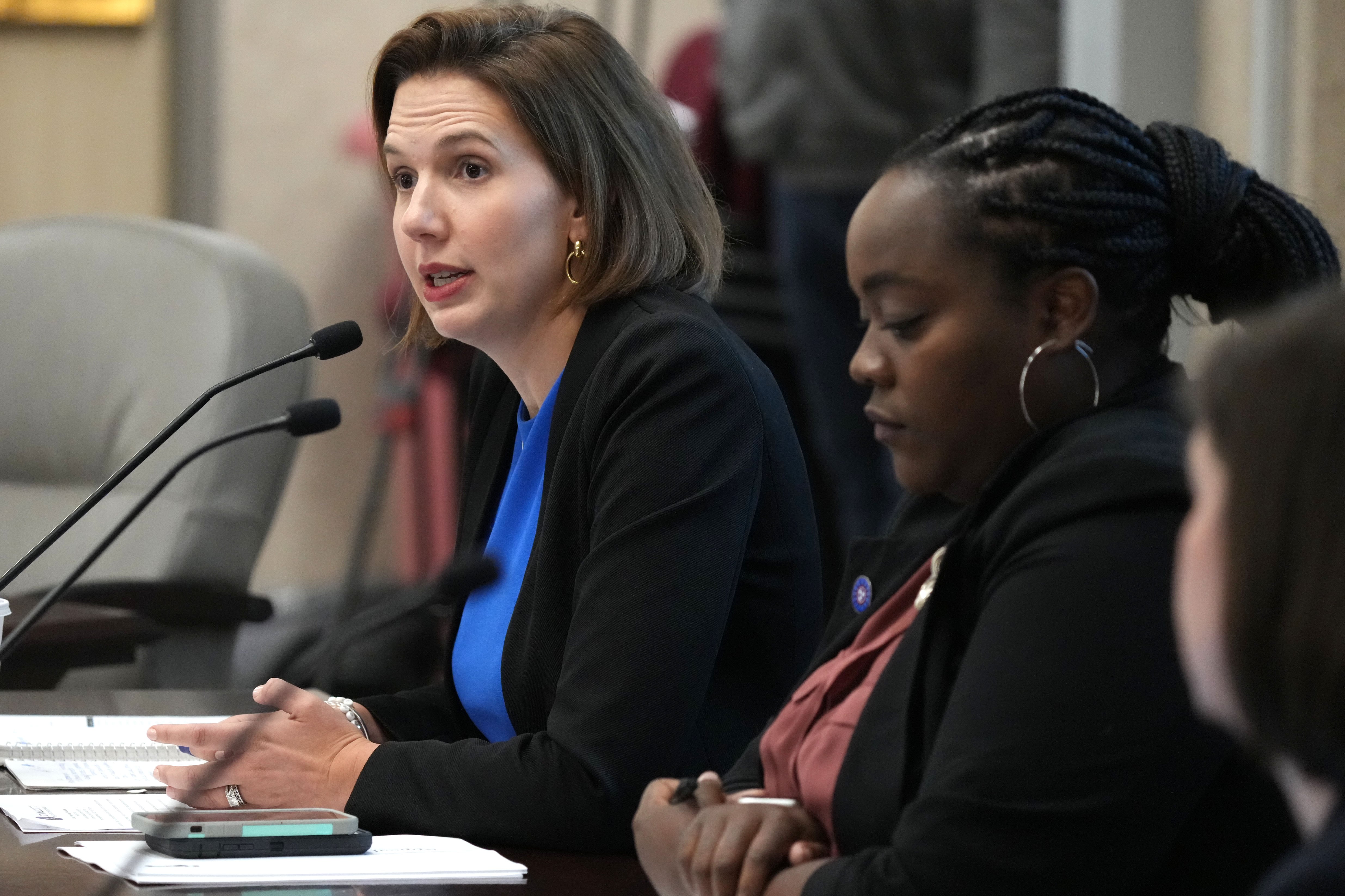Sign up for Chalkbeat Tennessee’s free daily newsletter to keep up with Memphis-Shelby County Schools and statewide education policy.
The head of a powerful Tennessee commission is recommending the state overturn five of eight local school board decisions denying charter school applications, including two in Memphis and one from a group linked with conservative Hillsdale College.
The recommendations from executive director Tess Stovall, released Monday, will be a key factor in votes set for later this week by the Tennessee Public Charter School Commission. The panel, whose nine members were appointed by Gov. Bill Lee, was created under a 2019 law pushed by the governor in his campaign to open more high-quality charter schools across Tennessee.
If the commission concurs with her recommendations as it usually does, Tennessee would become home to two classical charter schools operated by American Classical Education, a network affiliated with Hillsdale, a small conservative Christian college in south central Michigan.
Their opening would begin to fulfill a key education priority for Lee, who has said he wants the Hillsdale group to open at least 50 charter schools in Tennessee.
But Lee’s courtship of Hillsdale has attracted controversy. It is part of his ambitious plan to revamp the state’s charter sector in part by widening its student demographics beyond low-income urban areas. The governor is also supporting classroom history lessons like Hillsdale’s that emphasize America’s strengths rather than its shortcomings.
Additionally, Stovall recommended Monday that a Memphis school exiting the state-run turnaround initiative known as the Achievement School District should retain its charter, despite not moving out of the state’s bottom 5% of Tennessee schools academically in 10 years.
Stovall also said the commission should overturn the Nashville school board’s votes to reject two charter applications.
In its first two years of operation, the commission granted five out of 16 appeals.
Tennessee meets Hillsdale
American Classical drew national attention in 2022 after Lee endorsed Hillsdale’s approach to K-12 education, and invited its leaders to apply to open charter schools in Tennessee that align with his conservative beliefs regarding civics and other topics.
That drive stalled over public outrage in response to Hillsdale President Larry Arnn’s comment that teachers are “trained in the dumbest parts of the dumbest colleges in the country.” And the fallout prompted the network to withdraw applications to open three charter schools.
But this year, American Classical is trying again. It’s already gotten approval by Rutherford County’s school board to open a school in the fast-growing suburban enclave south of Nashville.
Stovall is recommending the state OK another American Classical school in Jackson-Madison County Schools, which is projecting an 8% increase in enrollment because of the impending arrival of Ford’s electric truck assembly plant in nearby Haywood County.
The West Tennessee district’s school board voted in July to deny American Classical’s application, saying the charter school would have a “substantial negative fiscal impact” to the school system. But based on its own financial analysis, staff for the commission rejected that claim, while Stovall commended American Classical’s identification of a school leader and target community.
However, Stovall recommended the state reject another appeal from American Classical to open a school in Maury County, a growing area southwest of Nashville. She cited concerns with the group’s enrollment projections, and dinged the operator for not identifying a school leader or the community in which the school intends to locate.
“Overall, the sponsor has several significant gaps within its proposed plan that it must address before it is ready for approval,” Stovall said.
Recommendations split on four Memphis appeals
In Memphis, Stovall sided with the appeal filed by Capstone Education Group to continue operating Cornerstone Prep Lester, one of five schools seeking to remain open as they prepare to exit the Achievement School District, or ASD, at the close of the 2023-24 school year.
A charter management organization, Capstone has operated Cornerstone in the city’s Binghampton community since the 2012-13 school year but never met its academic goals for automatically exiting the turnaround district.
However, Stovall said Cornerstone has shown improvement the last three years and appears to be “on track” to continue that trajectory.
“A significant reason for my recommendation to approve the application is the track record of the network, [which] has demonstrated that it can have success in school turnaround work in Memphis as it has achieved priority exit status with two of its three ASD-operated schools,” she said.
Stovall also recommended the state OK the application of Empower Memphis Career and College Prep, which wants to open a K-8 charter school focused on career and technical education in the city’s Orange Mound community.
The Memphis-Shelby County Schools (MSCS) board denied Empower’s application over concerns that Orange Mound already has too many unoccupied classroom seats while the district seeks to right-size its footprint. But Stovall said Empower’s application is of high quality, and that the commission may want to let the operator see if it can meet enrollment goals; Empower proposes to start with 100 students and eventually grow to 450.
Stovall recommended that the commission reject the other two appeals from Memphis.
One is from Green Dot Public Schools to continue operating Fairley High School in the Whitehaven area after exiting the ASD. The other appeal is from Pathways in Education, a school for nontraditional high school students that once operated two locations under the ASD.
Stovall agreed with the Memphis-Shelby County board that Green Dot has not shown “a clear path to tangible growth, achievement and success for Fairley students” to merit granting a new 10-year charter.
Without a charter operator, the fate of schools like Fairley exiting the ASD has been left up to local school officials. But Fairley, at least, appears poised to remain open under the oversight of Memphis-Shelby County Schools. Its supporters and alumni have turned out in droves imploring officials to maintain operations.
“I am confident in MSCS’s statement in the public hearing that, if the school is returned to MSCS, Fairley High School will remain open and in operation” under the district’s school turnaround program known as the Innovation Zone, or iZone, Stovall said.
In recommending the rejection of Pathways in Education’s appeal, Stovall noted that both of the applicant’s previous schools under the ASD were contract schools, not charter schools, and therefore were held to a different standard.
“As currently proposed, I have doubts as to whether the sponsor’s proposed plan could meet all requirements of charter schools and be successful under the current school accountability framework,” Stovall said.
Stovall also recommended overturning two Nashville school board denials of charter applications.
Invictus Nashville appealed to the state to let it open a Montessori school next year with up to 144 students in the city’s McGavock neighborhood. And Florida-based Noble Education Initiative proposed to open Nashville Collegiate High Schools in the Cane Ridge area.
The Metro Nashville school board said both groups failed to fully meet the state’s standards in academics, operations, and finance. The board also said opening the schools would negatively impact Tennessee’s second largest school district.
However, the commission’s staff disagreed based on their reviews of the applications and an analysis of the district’s finances.
Marta Aldrich is a senior correspondent and covers the statehouse for Chalkbeat Tennessee. Contact her at maldrich@chalkbeat.org.








